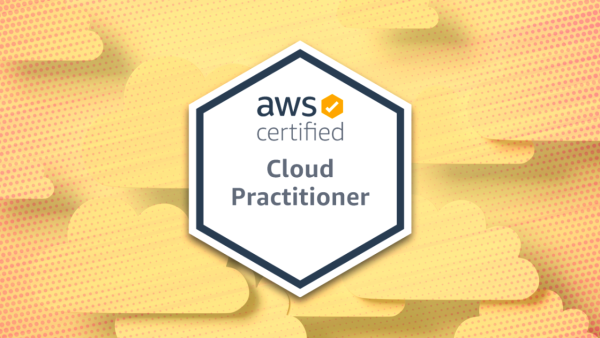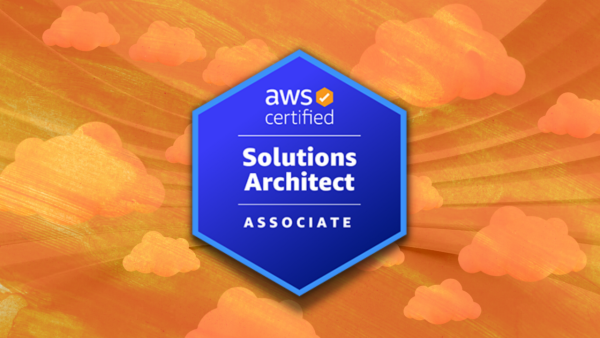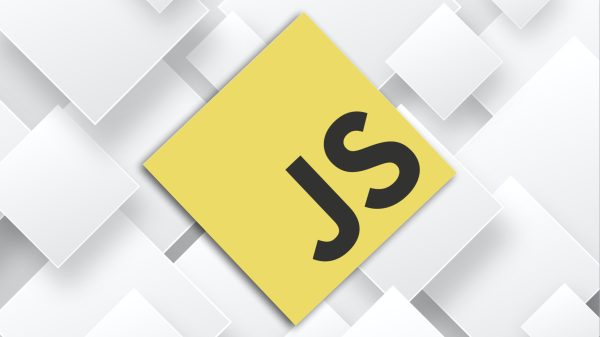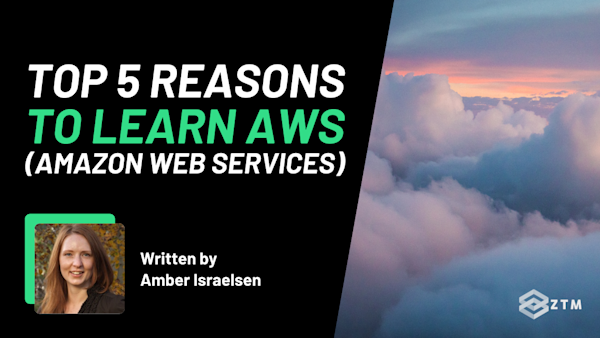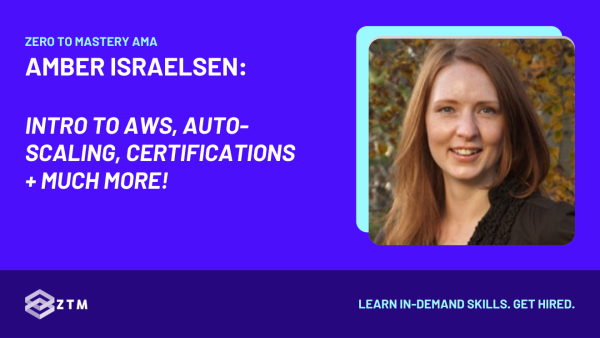Are you looking to ‘fly’ into a new career in the cloud?
Do you want to work with cool tech, solve interesting problems, and make good money while doing it? Well, then you’ve come to the right place!
In this post, we’ll dive into the world of Cloud Engineering and what it takes to become a Cloud Engineer. We’ll cover exactly what a Cloud Engineer does, the skills required in the role, and how to get that all-important experience you need to land a job.
So grab a cup of coffee and let’s go!
Don't feel like reading? Then check out the video below.
Or, keep reading to get answers to other related Cloud Engineer questions.
What is a Cloud Engineer and what do they do?
Global spending on public cloud services is projected to reach $1.61 trillion by 2028, so as you can imagine, there's huge demand for people in this role.
But what exactly do Cloud Engineers do?
In short, they build and maintain infrastructure in the cloud. Servers, networks, databases and that kind of thing. This role can be fairly broad and you may wear a lot of hats. You might be doing a bit of architecture, a bit of writing code, and a bit of administering and troubleshooting things like cloud networks.
But generally speaking, your job is to keep everything running smoothly behind the scenes so that customers can access their favorite sites and applications.
A typical “day in the life of” a Cloud Engineer might include:
Setting up a cloud network to house infrastructure components like virtual servers
Implementing security best practices around systems and data, such as adding users and maintaining permissions
Updating and patching systems to keep them secure and performant
Creating and maintaining databases and applications that run on the cloud
Troubleshooting issues on servers or the network that might occur throughout the day
Providing support to others on the team as needed
Is Cloud Engineering a good career?
Cloud computing has exploded in recent years, as companies look to get more bang for their buck. By moving to the cloud, companies can achieve better performance, reliability, a global reach, and even more importantly, they can usually do all of this for less money than building their own infrastructure on-premises.
Today, the three main cloud providers are:
Amazon Web Services, or AWS, (with the largest market share)
Azure (from Microsoft), and
Google Cloud
And while a lot of companies are already operating in the cloud, there’s still a lot of opportunity out there. According to Gartner, worldwide end-user spending on public cloud services is projected to reach $723.4 billion in 2025, up from $595.7 billion last year, reflecting a 21.5% increase.
And this demand is likely to continue for many years, which means plenty of job opportunities for you. In fact, there are currently over 129,935 Cloud Engineering jobs available on ZipRecruiter at the time of writing, and the pay is very attractive.
What is the average Cloud Engineer salary?
According to Glassdoor, the average salary for a Cloud Engineer in the U.S. is over $153,000 per year.
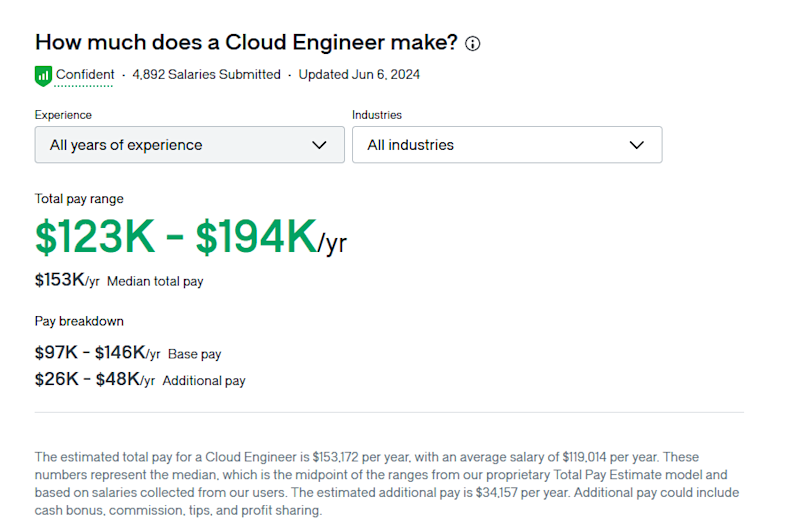
Pretty good right!?
By now you’re probably thinking “$150,000 a year! Gah, I bet I need a degree though and $200,000 in debt before I can start”
Actually no, not really...
Do I need a degree to become a Cloud Engineer?
While it is true that some companies will require a college degree, it’s not all of them. In fact, more and more companies are open to education through bootcamps, certifications, and vocational programs.
Here’s the thing, tech is one of those areas where some of the biggest and best people in the world are all self taught, and some even oppose the idea of people getting a college degree.
Being self taught is less of a blocker than you probably think. Especially because these days, you can learn the key elements of what's covered in a CS degree.
In fact, demand for people is so high, that the largest cloud providers have their own certification programs, to help people learn and get hired:
What skills do I need to become a Cloud Engineer?
Now that you have a better idea of the role, let’s look at the skills you need to land a job. As noted above, this role can wear a lot of hats, so having a broad set of skills is a good thing.
At a minimum, you should have a good command of the following:
Cloud-based technologies: Obviously, as a Cloud Engineer, you’ll need to understand the basics of how the cloud works, as well as things like virtualization, networking and storage
Operating systems: You should be familiar with Linux, Windows and Ubuntu, and be comfortable working on the command line and doing Bash scripting
Networking: Building on networking a little more, all of the cloud providers (AWS, Azure and Google Cloud Platform) are basically just giant networks. So you should understand things like DNS, TCP/IP, HTTP and VPNs, and how to secure a network
Security: You should understand key concepts like Identity and Access Management, firewalls and encryption
Programming: While this is not a programmer job per se, you’ll likely be doing some coding in languages like Python, so a basic understanding will serve you well
Databases: This is not a database administrator job, but you will need to install, monitor and manage databases and keep them secure so understanding how they work and how to use them does help
Troubleshooting and problem solving: These skills are necessary for all tech jobs, but especially cloud engineers. A big part of your job will be to identify and fix issues that come up in various places across your infrastructure
Soft skills: Soft skills are also key in all tech roles. For Cloud Engineers, it’s important that you can communicate complex technical concepts to non-technical people. You’ll also be interacting with other technical folks from software engineers to database administrators to architects. Project management skills will also get you far, being able to organize and structure your work and resources
While not essential for beginners, multi-cloud skills (AWS + Azure/GCP), cloud cost optimization (FinOps), and AI/ML in cloud (AWS SageMaker, Azure ML) are becoming more valuable. Learning these over time can help you stand out
How long does it take to become a Cloud Engineer?
Obviously that’s a lot of skills, and will take a little time to get them all under your belt, but don't worry, I have your back.
Following a guided course is the fastest way to become a Cloud Engineer, simply because you’ll only learn what you need to know, and won't second guess yourself.
I teach two courses on Cloud Engineering:
Combined, that's a total of 23 hours of video lectures to complete, but they cover 90% of what you need to know with regards to databases etc. (You'll be able to pass the certification exams easily).
Then, because you'll come into contact with code during work, you can add in some project work and learn some basic programming (python is a good option).
It will be different for everyone since people learn at different speeds but it's definitely possible that your total time to learn would be around 60-70 hours or so to complete.
(Assuming you complete a coding course as well up to a point where you have the basics under your belt... you don't need to be an expert coder).
I know 60-70 hours might seem like a lot but is really not bad when you consider this is learning from scratch with zero coding or cloud experience, and by the end of it, be able to land a job making over $100,000 / year!
Anyways, now you know how long it takes, let’s walk you through the best process to learn all this.
Roadmap to becoming a Cloud Engineer
The process I’m talking about below is for learning Cloud Engineering with AWS, but it could just as easily apply to any other cloud provider.
This path will teach you all of the skills listed above.
Step #1. Learn how to learn
This first step is completely optional but highly recommended, regardless of your current level of experience because here’s the thing: Most people don’t know how to learn effectively.
It’s not their fault. Schools teach basic methods of learning which are pretty inefficient.
The thing is, there are multiple different learning techniques that you can use that make all of your future learning efforts far more effective. This means you can understand faster and more efficiently, so less back and forth.
You can learn a lot of the key techniques for free right now in this guide, or better still, watch every important technique inside of Andrei’s learning how to learn course.
Estimated Time Required For This Step: 5 days.
I know it might feel like a step backward or even a detour, but think about it like this:
You can learn the core principles in a few days and then immediately start putting them into practice
You're going to learn everything else on this list 2x faster which will significantly cut down your learning time
You’re always learning new things in tech. This helps you do that faster
So yeah, it might seem like a step back but it's the equivalent of stopping to fuel up your car vs pushing it everywhere. Once you take that extra action, everything else will get easier so make sure you learn this.
Step #2: Learn Cloud fundamentals
Start off by learning how to become a certified cloud practitioner, and pass the AWS practitioner exam.
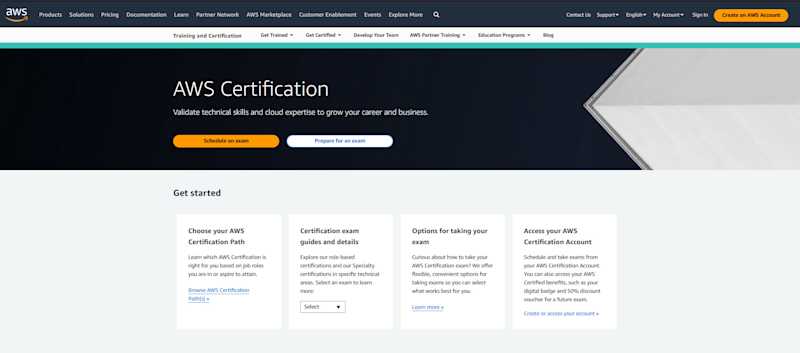
The best part about this, is that you can learn these fundamentals with no previous coding experience.
Also? This entry level role pays extremely well, with the average AWS cloud practitioner salary being around $132,000!
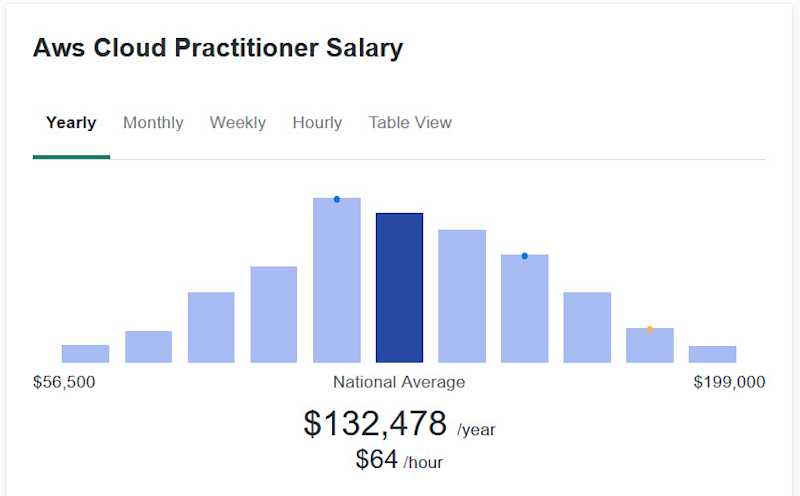
Not bad right?
Check out my course below and learn everything you need to pass the exam, and get hired at this step.
Estimated Time Required For This Step: 18 days.
Step #3: Train further, so you can become a Cloud Engineer
Now that you have the fundamentals, continue to learn to become a Cloud Engineer, and learn advanced cloud technologies and methods.
This will not only open up more Senior roles for you, but it can also pay a LOT more, with some companies offering $260,000 or more for Cloud Engineers. That's a big jump up from the practitioner role, so don’t stop learning yet!
Check out my course below on how to become a Cloud Architect and ace your AWS Solutions Architect exam.
Estimated Time Required For This Step: 28 days.
Step #4: Learn a programming language
You’re going to need some basic, foundational knowledge in a programming language, simply because this will come up now and again during your work.
I recommend either learning Python
Or JavaScript.
Estimated Time Required For This Step: 60 days to complete the full Python course but you won't need to finish all of it.
Basically, work through a course on either of these until you feel comfortable and understand the core principles, and can write some code. Maybe even build a basic project or two, as these will help you stand out in interviews.
Step #5: Get some hands on experience
So you’ve completed training, maybe even earned a certification, but employers are still asking for that all-important experience.
How can you get the experience before you get the job? Well, let’s walk through some of the best methods.
Create personal projects. Build a simple website hosted on your platform of choice. Then, build applications that pull together several different pieces, demonstrating that you can put together a solid cloud infrastructure. If you're not sure where to start, use this project as a guide to building a simple web app which uses a lot of common AWS elements.
Find gigs on freelance sites like fiverr.com, freelance.com, upwork.com and guru.com. Often the standard here is much lower than full-time work, and you can gain experience and build out your project portfolio
If you currently have a job in the tech industry, volunteer to shadow or help someone that has the same or similar role that you want
Search for internships. Even if they don’t pay a lot (or anything), they’re invaluable for experience and networking with others. You can even reach out to a local college or university, and tell them you’re looking for volunteer or internship opportunities in your area of interest
Write a blog. As the saying goes, you don’t really understand something until you can explain it to someone else. Writing about a topic not only forces you to understand it better, it also helps establish your credibility
Create YouTube videos. Along the same lines as creating a blog, creating video content will force you to better understand the area, and also help establish your credibility
Post about your topic on your social media. You can also answer other people’s questions on social media/forums/Stack Overflow. Just be sure to give thorough answers and cite your sources. You’ll quickly become known as the person who really knows topic X, and you’ll be surprised how many people get new jobs this way
Write whitepapers. Partner with schools or businesses to do some research and write about your findings. You can also reach out to well-known people and offer to co-author with them (they’ll often be happy for the help!)
Attend user groups and meetups. This is a great way to meet people, increase your knowledge and skills, and learn about opportunities
Reach out to local businesses and offer to help them for free. Build a simple website, set up a network for them, or get their data into a database
Estimated Time Required For This Step: 30-60 days.
Obviously this can be ongoing also. but you can apply for roles once you have completed the required training and projects for your portfolio. Speaking of which...
Step #6. Get job ready
Alright, it's almost time to apply for jobs. However, before we apply, we want to make the best first impression that we can, and it involves 3 things:
Making sure that your LinkedIn profile is looking professional and up to date. Even if you don't use the platform to apply for jobs, potential employers may look on there to check you out. Not to mention, you can even get approached by headhunters and get job offers with you even applying!
Create a one-page resume for applications. Some will ask you to submit it when you apply online, so get one made
Tidy up your portfolio of your project work. Companies are going to want proof that you can do the work required, so it’s important to have a portfolio of projects you’ve completed. Hopefully you’ve been keeping on top of this as you’ve been going through each course!
The good news?
Fellow ZTM instructor [Dan Schifano has a fantastic personal branding course that helps you to get job ready so check that out again and do those tasks.

Estimated Time Required For This Step: 10 days to complete.
Then it’s time to apply for jobs!
Step #7: Apply for jobs!
One of the reasons that tech companies hire people without college degrees is that they have a thorough interview process.
This means not only answering technical questions about the role you’re going for, but they will also want to see previous project work or ask you to complete a project that allows you to demonstrate you have the necessary skills (regardless of how or where you learned them).
If you're a ZTM member, then I HIGHLY recommend you check our Andrei's new course on getting hired at your dream job:
Estimated Time Required For This Step: 5-10 days.
He covers all this in far more detail, including his technique to get a 90% interview success rate!
If you're not a ZTM member, then check out this guide, as well as these extra tips:
Tech jobs are more than just tech skills
In addition to the technical know-how you’ve built up through education and certification, interviewers will be evaluating your soft skills.
Be prepared with examples showing how you’ve collaborated with co-workers or led teams or projects in the past
Make sure to demonstrate strong communication skills in writing and during the interviews (whether virtual or in-person)... Even very basic things like: using proper grammar and having no spelling mistakes, sending a thank you email with 24 hours of your interview, etc.
Have specific examples of how you’ve solved problems
A Cloud Engineer does a lot of troubleshooting and problem solving.
Be prepared to talk through a situation or two where you saved the day by solving a complex or business-critical problem. If you don’t have work-related examples, share stories from school or community projects.
The usual interview prep
Like any other kind of interview, it’s always good to:
Research the company. Learn what you can about their cloud needs and why they’re hiring for your role
Learn what you can about the people you’ll be interviewing with, and what their potential areas of focus will be. You can always ask when they offer the interview, and they will happily let you know
Practice, practice, practice. Do a mock interview with friends or family, or even just interview yourself, speaking your answers out loud. It’s amazing the difference this makes, and how much more polished you’ll be on the big day
Be on time (or even a little bit early) for the interview
Dress the part. Figure out the “norm” for the company’s culture (jeans and T-shirt or more professional?) and dress to fit in. If you’re unsure, err on the side of dressing “up"
Start learning Cloud Engineering today!
So there you have it, friends! I hope you’ve found this post helpful.
Like all career moves, becoming a Cloud Engineer takes time and effort, but it’s an exciting area with lots of opportunities, especially because almost everything is moving to the cloud!
You’ll get to work on a variety of interesting problems, learn cool technologies, and get paid well while doing it, which is not bad either.
So dig into the training and certifications that I mentioned above, and get as much hands-on practice as you can using some of the tips from this post. Then, ace the interview, and enjoy your flight to the clouds!
P.S.
All of the courses I’ve mentioned above, are all part of Zero To Mastery. So if you become a member, you have access to all of these courses right away and will have everything you need in one place.
Plus, as part of your membership, you'll get to join myself and 1,000s of other people (some that are alumni mentors and others who are taking the same courses that you will be) in the ZTM Discord. Ask questions, help others, or just network with other tech professionals.
Make today the day you took a chance on YOU. There's no reason why you couldn't be applying for Cloud Engineering jobs in just a few months from now if you just follow the steps I outline and put in the hard work.
So what are you waiting for? 😀 Dive into your new cloud career today!
Best articles. Best resources. Only for ZTM subscribers.
If you enjoyed this post and want to get more like it in the future, subscribe below. By joining the ZTM community of over 100,000 developers you’ll receive Web Developer Monthly (the fastest growing monthly newsletter for developers) and other exclusive ZTM posts, opportunities and offers.
No spam ever, unsubscribe anytime
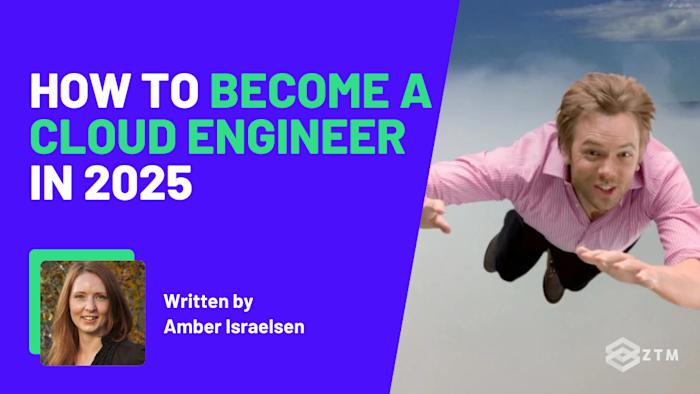
![Learning to Learn [Efficient Learning]](https://images.ctfassets.net/aq13lwl6616q/6VWcUgLgG0SU55ORlILe2S/e186361aeb48561bcd19ae6486577022/Learning_to_Learn.jpg?w=600&h=336&fl=progressive&q=50&fm=jpg&bg=transparent)
